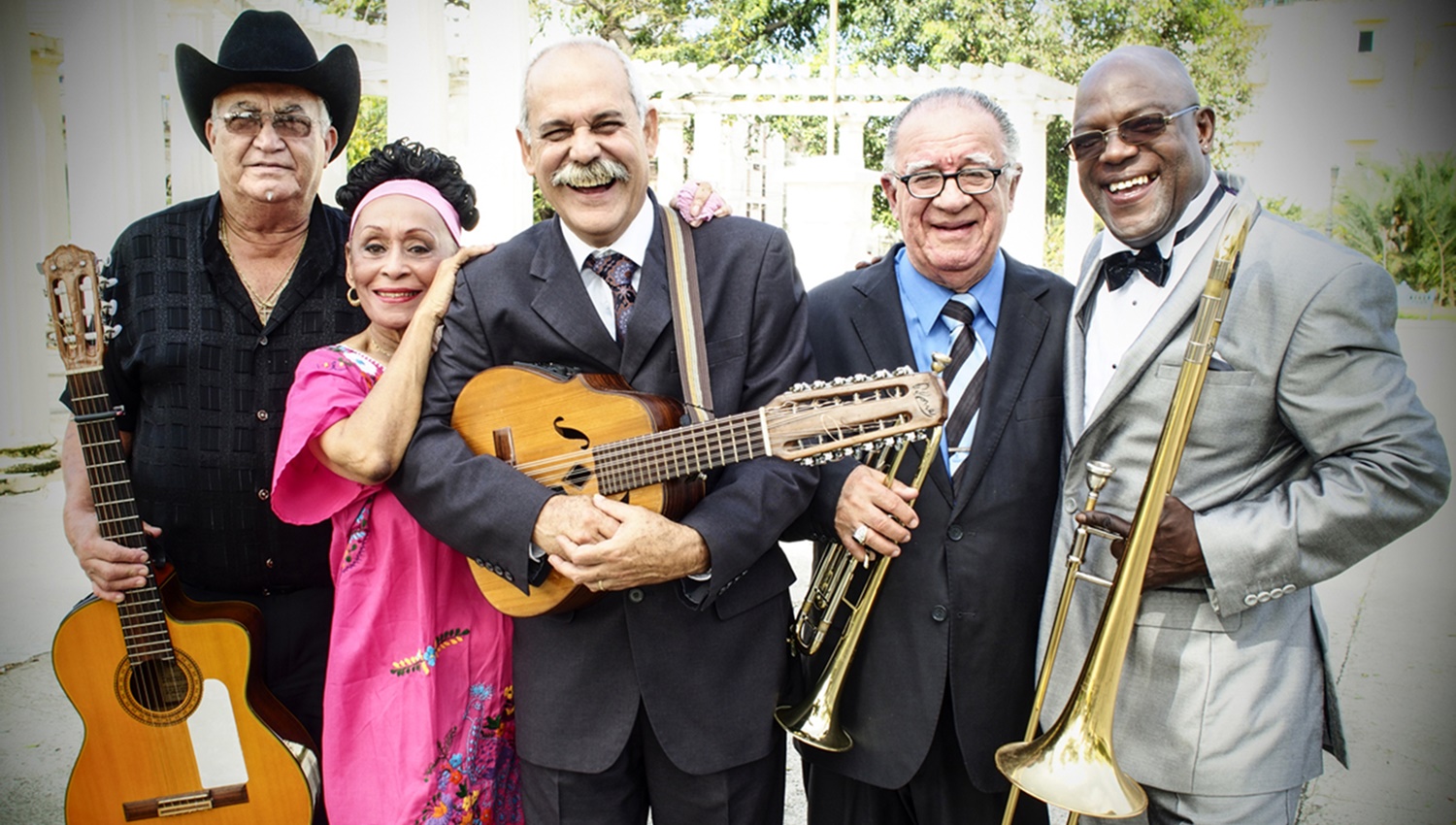
Buena Vista Social Club: Adios
Dustin Chase
The Buena Vista Social Club dates back to 1996, when a loosely connected group of veteran musicians were brought together in Havana rather spontaneously to record two albums by African and Cuban musicians. The African musicians did not arrive because of visa problems, but band leader Juan de Marcos Gonzalez was determined to reinstate music from Cuba’s golden age of the 1940’s and 1950’s. So with Nick Gold of the UK label World Circuit and American Producer Ry Cooder, they recorded the album, Buena Vista Social Club, which, despite their modest aspirations, became the biggest-selling Cuban album (more than 8 million albums) in history after it was released in 1997.
De Marcos had located and assembled old-timers pianist Ruben Gonzalez, singer Ibrahim Ferrer, guitarist and singer Eliades Ochoa, singer Omara Portuondo (their “leading lady”), and singer Compay Segundo. They would be joined by contemporary artists of note, such as bassist Orlando ‘Cachaito’ Lopez, trumpeter Manual ‘guajiro’ Mirabal, and laoud player Barbarito Torres. Ry Cooder was so jubilant after the recordings, he swore it to be “the best thing I was ever involved in.” He went on to say, “These are the greatest musicians alive on the planet today. In my experience Cuban musicians are unique. The organization of the musical group is perfectly understood. There is no ego, no jockeying for position so they have evolved the perfect ensemble concept.”
Can be praised for its highlights of the lives of dedicated musicians, for whom music is life, and for its revitalization of a beloved musical genre and the Cuban ethos and spirit.
In 1999, the highly acclaimed German director Wim Wenders directed a documentary entitled Buena Vista Social Club, in which he filmed some of the original recordings, along with excerpts of their subsequent concerts in Amsterdam and New York City and interviews of musicians telling their stories.
Sixteen years later, we have another documentary by Lucy Walker that filmed the now-named Orquesta Buena Vista Social Club’s final tour, which lasted over a year (1998-99) and spanned four continents. It’s a retrospective look back at the people and the music of Cuba, with clips of the original BVSC artists, as well as current performances by additional members replacing those who have died. Early scenes are filmed in Cuba, showing the old stomping grounds and hearing the major actors reminisce about their early days and the bands they played in along the way, interspersed with clips from the past. Then we see them on their last tour around the globe beginning with their first live concert in Amsterdam in 1998, complete with the conflicts, even up to the day before.
All their endeavors have been highly successful, keeping Cuban music alive and valued. These revered artists were filled with wonder right up to the ends of their lives about how much their audiences have loved their songs. Ry Cooder won a Grammy for his CD, Wenders’ documentary was nominated for an Academy Award, Ibrahim Ferrer was awarded three Grammies but was denied a visa to attend the ceremony in 2003, and Gonzalez, Portuondo, and Ferrer received the Order of Felix Varela, Cuba’s highest cultural honor. Compay played his last show only two weeks before his death, and Ibrahim Ferrer’s was only four days before his death.
After détente, the Orquesta Buena Vista Social Club was invited to play at the White House in 2015, hosted by President Obama and Vice President Biden. They ended their tour in Havana in 2016. As of 2017, Portuondo was still on tour at age 86.
Walker’s documentary does not contain much information that is new, but can be praised for its highlights of the lives of dedicated musicians, for whom music is life, and for its revitalization of a beloved musical genre and the Cuban ethos and spirit.
Final Thought
The Cuban musical phenomenon across the years.
